Cooking oil is a staple for cooking. However, all cooking oils are not the 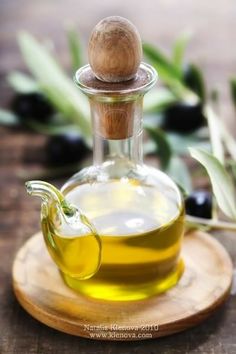 same. Some are more or less healthy than others. This to a great deal depends on how the oil is being used. The purpose of this article is to shed light on the facts about cooking oil.
same. Some are more or less healthy than others. This to a great deal depends on how the oil is being used. The purpose of this article is to shed light on the facts about cooking oil.
What is Cooking Oil
Cooking oil is in a word: fat. It is animal, plant, or synthetic fat used in baking, frying, and other kinds of cooking. It is additionally used in food preparation and flavorings that doesn’t involve heat, such as salad dressings and bread dippings like bread dips, and may be called suitable for eating oil.
Cooking oil is usually a liquid at room temperature, though some oils which contain saturated fat, such as coconut oil, palm oil and palm kernel oil are solid.
Types of Cooking Oil
There is a broad assortment of cooking oils from plant sources like olive oil, soybean oil, palm oil, canola oil (rapeseed oil), corn oil, peanut oil and other vegetable oils, as well as animal- sourced oils like butter and lard.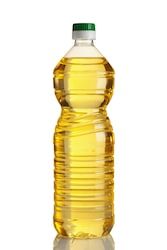
The Benefits of Cooking Oil
First, and largely significantly, the cooking oil conducts heat from the hot pan to the food being cooked. The oil significantly intensifies the surface of the food to come in contact with heat evenly, instead of having only parts of the food come in direct in contact with the pan.
Additionally, the oil more or less prevents food from sticking to the pan or pot.
Moreover, the oil or any type of fat for that matter, is an important flavor enhancer. It results in better tasting food because it brings out the flavor.
Oil facilitates texture, which is how we get the fried crust on the outer surface of fried foods.
Which Cooking Oil is the Best
There are plenty of options when it comes to choosing which type of oil to use. A few, like olive oil, are well-known, and others, such as avocado or 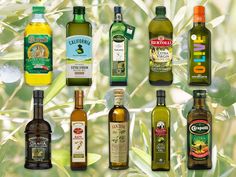 coconut oil, are less familiar.
coconut oil, are less familiar.
Which oil is right? That depends mainly on the type of cooking involved. An oil’s smoke point, which is the point when oil begins to burn and smoke, is one of the most important things to consider. If oil is heated past its smoke point, it not only spoils the flavor, but many of the nutrients in the oil decompose causing the oil to release harmful compounds called free radicals. For more information on free radicals, read the article: What are Free Radicals and why are They Bad.
If one is wondering which is the best cooking oil for their health; and which oils are not healthy—there’s some disagreement. So let’s take a look at some choices.
Olive Oil – Experts in both the cooking and nutrition fields concur that one of the most versatile and healthy oils to cook with and eat is olive oil, provided it’s extra virgin. It’s always best to use an oil that is not refined and overly processed, The “extra virgin” label signifies that the olive oil is not refined, and therefore of high quality. Extra virgin olive oil contains a considerable amount of monounsaturated fats and some polyunsaturated fatty acids; studies
have linked it to better heart health. Olive oil features a relatively lower smoke point compared to other oils, so it’s best for low and medium-heat cooking. It’s additionally one of the healthiest oils to use when baking.
Coconut Oil – As a general consensus, coconut oil should either be avoided or incorporated in moderation. The main point of conflict is its high concentration of saturated fat; contrasting other plant-based oils, coconut oil is principally a saturated fat. However, not everyone concur that such a strong source of saturated fat is a no-no for health, but some experts, including the American Heart Association, contend that replacing foods that are excessive in saturated fat with more healthy options is able to lower blood cholesterol levels and achieve better lipid profiles. Still, science is beginning to advocate that not all saturated fats are bad for you.
Overall, there’s a lot of tout about coconut products that overall aren’t backed by sound science. That’s not to say coconut oil is going to cause an individual to become ill, just don’t go overboard. Our bodies do require a little saturated fat. But the industry has done a good job to make it seem like it is a super food. However, the research just isn’t there.
But that doesn’t mean it should be excluded from the pantry. Saturated fats 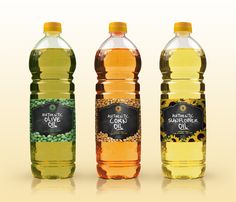 can be a healthier oil to use when you’re cooking at a very high temperature or frying food (although that is something that definitely should be done in restraint), because they are more stable at high heat. This is to say that they are less likely to break down and smoke.
can be a healthier oil to use when you’re cooking at a very high temperature or frying food (although that is something that definitely should be done in restraint), because they are more stable at high heat. This is to say that they are less likely to break down and smoke.
Vegetable Oil – Vegetable oil is the term used to refer to any oil that derives from plant sources, and the health value of a vegetable oil depends on its source and what it’s used for. Most vegetable oils on the market are blended with a mix of canola, corn, soybean, safflower, palm and sunflower oils. It is generally more beneficial to use olive oil instead of a corn or soybean oil.
Fact is, vegetable oils are refined and processed, which means they not only lack flavor, but they also lack nutrients. Vegetable oils are guaranteed to be highly processed. They are called vegetable so that the manufacturers can substitute whatever commodity oil they want, such as: canola, soy, corn, cottonseed without having to produce a new label. Processed oils have been pushed way past their heat tolerance and have become rancid in the process.
Canola Oil – Canola oil is resultant from rapeseed, a flowering plant, and contains a decent amount of monounsaturated fats and a suitable amount of polyunsaturated fats. Of all the vegetable oils, canola oil tends to have the least amount of saturated fats. It has a high smoke point, therefore it can be beneficial for high-heat cooking. However, in the US, canola oil have a tendency to be highly processed, meaning fewer nutrients by and large. Cold-pressed or unprocessed canola oil is available, but it can be hard to find.
Avocado Oil – Avocado oil is an excellent choice. It is unrefined like extra virgin olive oil, but it has a higher smoking point, therefore it can be used to cook at higher heat and is great for stir-frys. It doesn’t have much in the way of flavor, but that makes it a good option for cooking. Avocado oil contains both monounsaturated and polyunsaturated fatty acids (it has one of the highest monounsaturated fat concentrations among cooking oils) as well as vitamin E. The only downside is that it is likely to be more expensive.
Sunflower Oil – Sunflower oil is high in vitamin E; one tablespoon contains 28% of a person’s daily recommended intake of the nutrient. It has a high smoke point and it doesn’t have a strong flavor, which means it won’t overpower the flavor of a dish. However, it contains a large amount of omega-6 fatty acids. Even though the body needs them, omega-6s are thought to be pro-inflammatory, while omega-3s are anti-inflammatory. Therefore, consuming too many omega-6s without balancing them with omega 3s, can lead to excess of inflammation in the body, so limitation is key.
Peanut Oil – Nut oils, such as peanut, can be enjoyable to test with in the kitchen, mainly since there are so many variations of types. Peanut oil has one of the highest content of monounsaturated fat among the cooking oils. It’s generally flavorful with a nutty taste and smell, and cooks favorably at high heat.
Walnut Oil – This oil has a low smoke point, therefore it isn’t good for cooking, but it can be used in a bounty of other ways. For example over pancakes, freshly cut fruit and ice cream. It can also be added to frothed milk for coffee drinks. Walnut oil has a good ratio of omega-6 to omega-3 fatty acids, which helps keep inflammation under control.
Flaxseed Oil – Flaxseed oil is high in omega 3s and has a very low smoke point, consequently it also shouldn’t be used for cooking. However, it can be 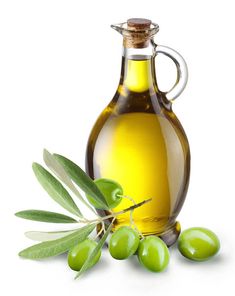 used for dressing. But it must be stored at a low-temperature location, like in a refrigerator.
used for dressing. But it must be stored at a low-temperature location, like in a refrigerator.
Sesame Oil – Sesame oil is often used for its potent flavor; a little goes a long way. It has both monounsaturated and polyunsaturated fatty acids, although it is not especially high in concentration with other nutrients. But It has a higher smoke point so it can be used for high-heat recipes.
So as you can see, there is a variety of oils for a variety of uses and benefits. So be sure to choose wisely to get the best flavor, texture and health advantages. Cooking oil can make or break our recipes and bodies alike. Remember, moderation in all things is key.
All questions, comments and concerns are welcomed below.
Good Health!!
This article has a lot of great information on the many different cooking oils. I am a beginner in the kitchen and mostly cook very basic foods, but I always wondered about the different oils and when to use them. I use olive oil for most of my cooking mostly because I heard it was healthier than vegetable oil. i did not realize that they had different smoke points. After reading this article, i will pay more attention to this and use the appropriate cooking oil!
Yes Dave, that’s important if you use high temperatures in your cooking. If the oil gets hotter than it’s smoke point it can become unhealthy.
Thanks for commenting and good luck in the kitchen!
Hi Nathaniel, I liked your post to explain the the different types of oils. You have a great video in you post also explaining it as well. Here I thought it was good to go back to using butter rather than margarine. I guess that is not such a good idea after all. I found out on the video that avocado oil is really the most versatile oil on the market, from what I could gather. It has a high smoke point and is also healthy.
That’s correct Carolyn. Enjoy the avocado oil!